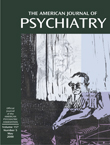Dr. Pallanti Replies
My thanks to Richard Abrams, M.D., who touched on a crucial issue. It is puzzling that despite the recognition in Minister of Health Bindi’s circolare of the effects of ECT “in 50% of drug-resistant, depressed patients” and its tolerability, “with only transient mnesic effects,” a radical curtailment is nonetheless envisaged, supposedly because of its “wild use.” This seems unlikely when fewer than 50% of the mental health facilities can perform it, costs are not refunded by local administrations, and patients have to travel long distances for treatment. The incoherence of this circolare is unacceptable.
Admissible moral objections must be distinguished from propaganda and consensus seeking. Clearly, the wishes of the nonscientific community should be considered and reckoned with: a case in point is that of American HIV patients who successfully brought about the introduction of zidovudine before the completion of clinical trials. But Di Bella’s nontoxic cocktail against cancer, which received financial support for clinical trials despite a lack of scientific documentation, clearly revealed institutional weakness in the face of public opinion, which was readily swayed by the image of the frail 85-year-old Di Bella and encouraged by certain opportunistic politicians too interested in consensus to care about science (1). ECT, on the other hand, is an unpleasant term with a bad image; it lacks powerful support from economic lobbies even though it works. Its virtual suppression represents the premature resignation of the Italian psychiatric community and also indicates the difficulty of scientific communication.
The question of communication needs addressing, especially in Italy, where humanist culture dominates. Physicians must devote more attention to the physician-patient relationship—not always given due consideration in the use of ECT, but still a prime vehicle of communication (2). And greater scientific literacy would allow adequate methodological evaluation, thus avoiding incoherence and the immoral consequences of the “rhetorical” stigmatization of ECT—a biased rhetoric that is neither humanistic nor scientific—which affects patients by prolonging their wait for appropriate therapy. It is worth remembering that Italy produced not only Cerletti but also Galileo, who was persecuted for his scientific achievements.
This letter is not a defense of ECT but a reflection: in scientific medicine, “we do what works” (3), but obviously there are implications, an example being the philosophical debate in neuropsychiatry on topics long considered to be “ontological” (e.g., cerebral death for organ donation, euthanasia). But therapeutic choices cannot acceptably be the result of purely political and ideological decisions. Clearly, science has its own inner ideology that reflects a contingent social context; it is utopic to think decision-making processes are free from social context, especially given the dramatic nature of health choices. Science used to be legitimized dei gratia, but now it seems that a superior divine authority is being replaced by a political authority rather than by methodological correctness and widespread informed approval.
1. Remuzzi G, Scieppati A: Lessons from the Di Bella affair: commentary. Lancet 1999; 353:1289–1290Google Scholar
2. Support for a pragmatic health minister (editorial). Nature 1998; 392:421Crossref, Medline, Google Scholar
3. Lewontin RC: Biology as Ideology: The Doctrine of DNA. New York, HarperCollins, 1991Google Scholar



